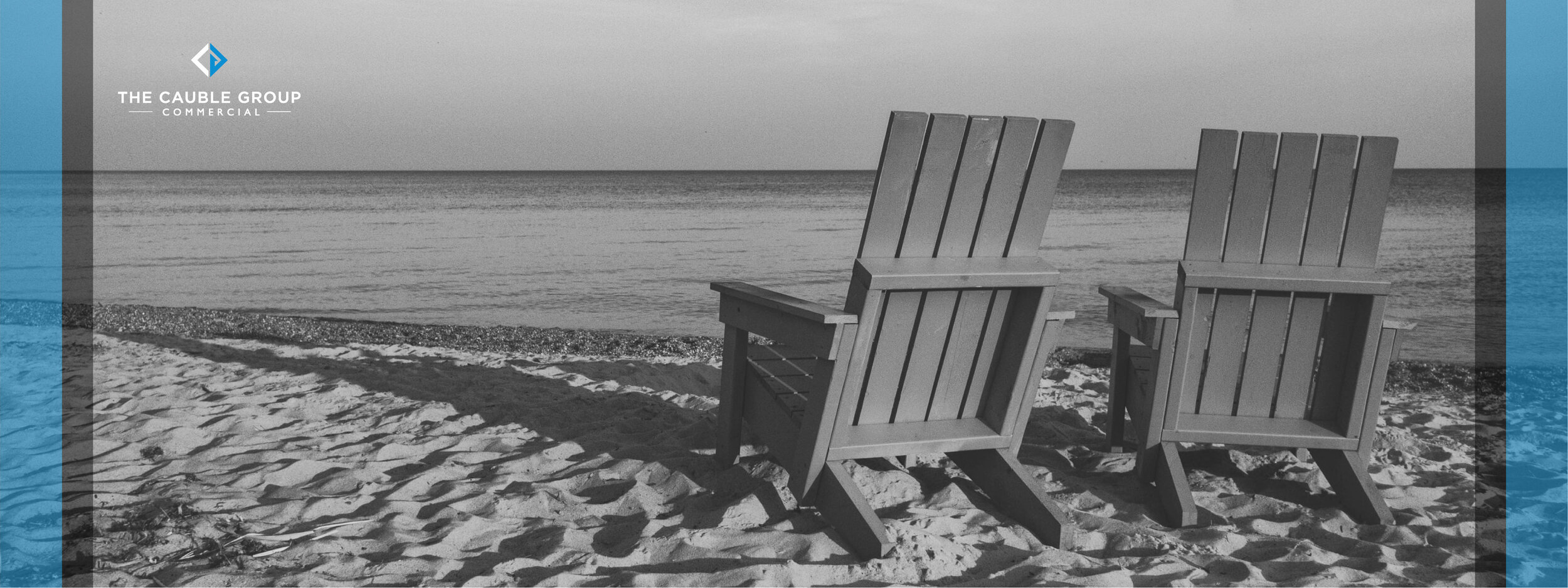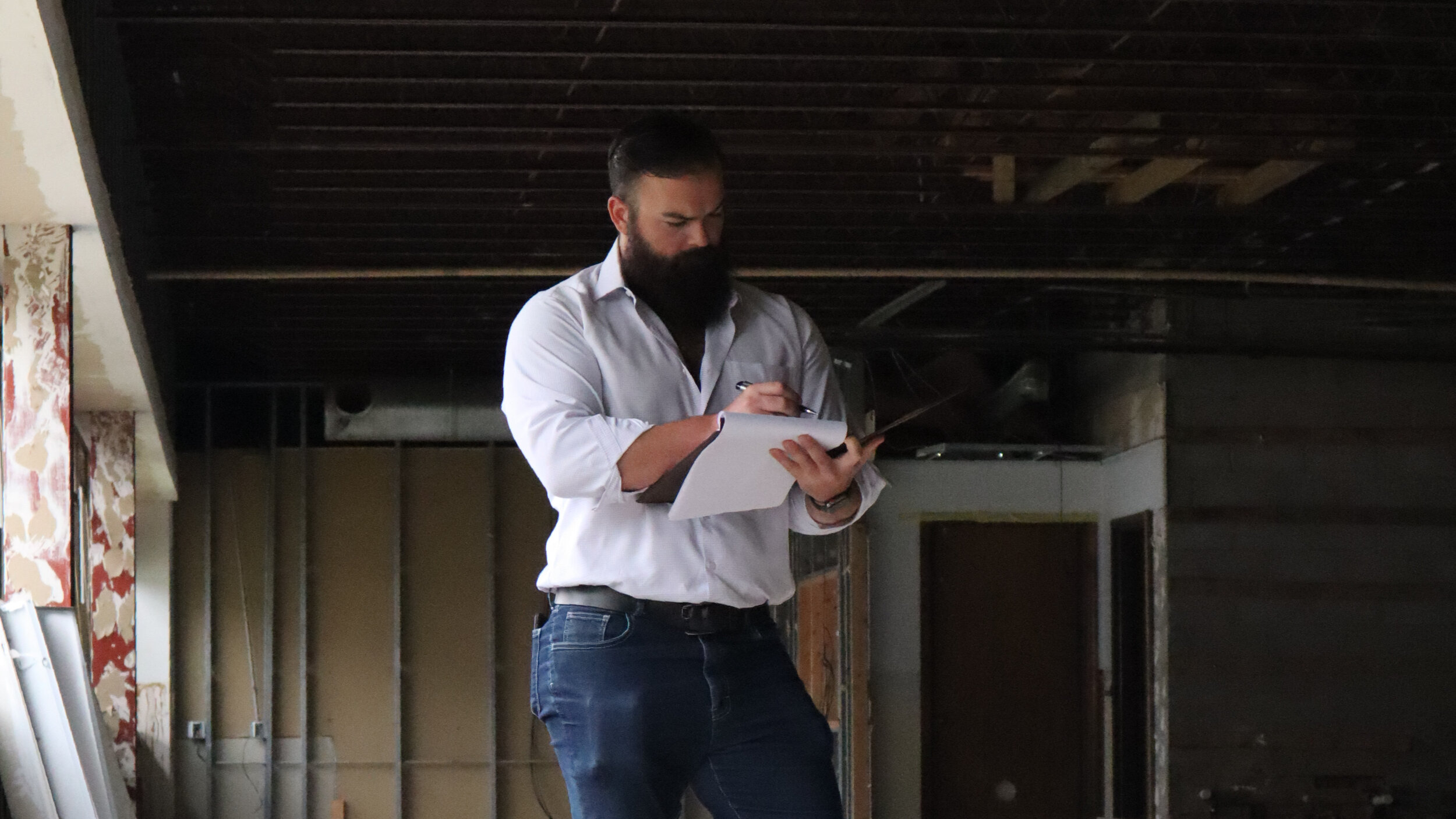Lessons Learned from a $4.8 Million Cash Raise
As you might expect, raising capital for commercial real estate isn’t all that easy.
In fact, it’s my least favorite aspect of investing in commercial properties - I’d much rather stay in my lane and focus on deal sourcing and acquisitions, planning for and developing the project, and executing our ideas.
However, capital is a finite resource and if you’re looking to grow your assets under management, you’ll need to throw that fuel on your fire and bring in outside capital from investors.
I recently finalized a $4.8 million cash raise with my partners on a commercial development in Nashville.
At 10x my largest capital raise to-date, this raise gave me some valuable insight to the entire process.
So, here are my biggest takeaways.
An Experienced Team Matters
Investors and lenders want assurance that the team putting this project together has the capability to pull it off - otherwise, they simply won’t invest or lend you the money.
Think about it - investors are about to hand you a significant amount of money with the trust that you’re going to not only return that capital to them, but that you’ll also have a successful enough investment to give them a solid return on their money.
And banks aren’t in the lending game for charity - they have shareholders, a managing board, and others that hold them accountable for their productivity. They, too, don’t want the risk of a failed project on their hands because they’ll have to step in, foreclose on the project, and attempt to sell it in order to (hopefully) recoup their losses and make a profit.
So, what should you do if you don’t necessarily have the experience needed?
I mean, everyone does have to start somewhere.
If that’s the case, then go find partners or mentors that can lend their experience to your team so that you can bring your investors and lenders confidence. Find someone with experience in commercial real estate syndication, bring in a partner that has developed multifamily before.
Sure, you’ll have to give up a portion of the deal, but this path is better for you to take if you don’t have the experience, anyway, since you will learn from an expert and benefit from their knowledge.
Get Your Attorneys Involved Early
When I’m going through the acquisition process, I have multiple attorneys involved - each with a different specialization.
There’s my real estate attorney, who handles:
The purchase and sale agreement
Negotiations
Title commitments and review
General lease and contract review
Environmental, survey, and geotechnical review
And more
They also serve as my general counsel and guide me throughout the process in a manner that best protects and benefits my interests.
I also have my syndication attorney, who handles:
Entity formation
Drafting of the PPMs
Compliance with the SEC
And more
It’s important to have attorneys that specialize within the specific niche that you are needing assistance - don’t just hire your brother-in-law that focuses on environmental litigation just because he’s an attorney.
I would also recommend getting them involved as early in the process as possible.
My real estate attorney is overseeing all contracts and documents from day one since they’re working on the PSA and generally covering my best interests.
Once you know that the investment or development has wings to it, get your syndication rolling on those PPMs as soon as possible - it’s not uncommon for it to take up to two weeks to properly draft the agreements.
You certainly don’t want any project delays from documentation on your end.
Take Your Marketing Materials Seriously
When we were going through this capital raise, my partners and I got a number of compliments on both our renderings and our offering memorandum packet.
I engaged a local architecture firm, Pfeffer Torode, to help with the design and architecture on the project. Not only are they one of all the most creative architecture firms I’ve ever worked with, they also put more effort and energy into creating beautiful renderings that really catch an investor’s eye.
In fact, these renderings were so well done that I was even asked by one of our investors if the project had already been built! They thought we were showing off photographs of the existing project.
Having high-quality renderings provides a massive boost to your project whenever you’re pitching since the viewer can truly see the final product.
Our offering memorandum was also well-constructed and thorough, where necessary.
I had my analyst do all of the research needed to prove our investment thesis so that my data-driven investors understood the metrics, while my graphic designer put together a professional and easy-to-read packet template for my more creative investors.
I’ve seen far too many pitch decks look like they’re straight out of Microsoft Power Point. If you want to raise hundreds of thousands, if not millions, of dollars, then you need to spend the time and money on curating a professional investor package.
Over Raise and Get That Money in the Bank!
When you’re going through a capital raise, it’s wise to aim for an overly committed offering by 1.5x to 2x or more.
Why?
Because things happen and investors will drop out for one reason or another. Don’t take it personally - just prepare for it to happen and take the necessary precautions to ensure that you’re protected, instead.
We had a number of investors drop out of the raise throughout the process. Some eventually decided they couldn’t invest outside of value-add multifamily, some realized that they weren’t accredited (this was a 506c offering), and others simply had family issues come up that prohibited them from parting with their cash.
The money isn’t raised until all of the documents are signed and the money is in the account.
And the earlier you can get the funds in the bank, the better.
We found ourselves in a time crunch because some of the investors had signed all of their docs but hadn’t funded, pushing us up against our closing deadline. I had to keep checking the account balance the day of closing just to ensure that funds were still coming through and we wouldn’t have to push the acquisition another few days.
Everything ended up working out just fine, but I would prefer to have the comfort of knowing the project is fully funded a week or two prior to closing next time.
It’s Almost Always More Difficult Than It Seems
When working on a project, you’ve likely had weeks or months to dive into the data, study every nook and cranny onsite, and really calcify your opinion for the investment’s success.
Your investors, on the other hand, have not. Nor have your lenders, consultants, or anyone else you’ll need to work on the project.
I went into this cash raise a bit too confident in our ability to pull it together quickly. Since we had an innovative idea (a mixed-use campus designed for entrepreneurs and small businesses), a phenomenal location (only 5 minutes from downtown Nashville), and a strong team (each had extensive experience in a variety of real estate investments), I figured it was already teed up.
However, that’s never really the case.
You’re asking investors to trust you to not only give them their money back, but to also grow their funds. It doesn’t matter how wonderful of an opportunity it could be, that’s still a big decision for an individual or family to make.
Your consultants also have other projects and won’t necessarily be working on your ideal timeline. We actually had a surveyor that ended up taking 2 months to get us the survey back. Obviously, we won’t be working with them again, but that can happen.
Now, it probably did help that I didn’t fully appreciate how difficult the entire process would be.
Next time, I’ll certainly understand and appreciate the difficulty, but I’ll never let that get in the way of doing the next project.
About The Author:
Tyler Cauble, Founder & President of The Cauble Group, is a commercial real estate broker and investor based in East Nashville. He’s the best selling author of Open for Business: The Insider’s Guide to Leasing Commercial Real Estate and has focused his career on serving commercial real estate investors as a board member for the Real Estate Investors of Nashville.


















In 2008, the city of Chicago sold off the rights to 36,000 parking meters for $1.15 billion. At the time, officials praised it as a financial lifeline—a way to plug a massive budget deficit without raising property taxes. But by 2025, the investors behind that deal had already earned back every dollar… plus $500 million in profit. And the kicker? They still had 60 years left on the contract.
Chicago didn’t just lose out—it got absolutely fleeced.
This wasn’t a one-off oversight. It was a glaring case of what happens when institutional leaders misunderstand the quiet power of boring real estate. Because what looked like an outdated relic—coin-operated meters on slabs of city asphalt—turned out to be one of the most lucrative investments in modern American history.
But this story isn’t really about Chicago. It’s about the invisible empire that grew underneath America’s cities—parking lots, storage yards, fenced land—and the people who saw their value long before Wall Street did.
The investors who win in commercial real estate aren’t always the ones chasing the flashiest properties. They’re often the ones who ask the simplest question: “Can I charge rent on that?”
This is the story of how surplus land and painted asphalt built billion-dollar fortunes—and how the exact same principle is quietly shaping the next wave of wealth in commercial real estate.